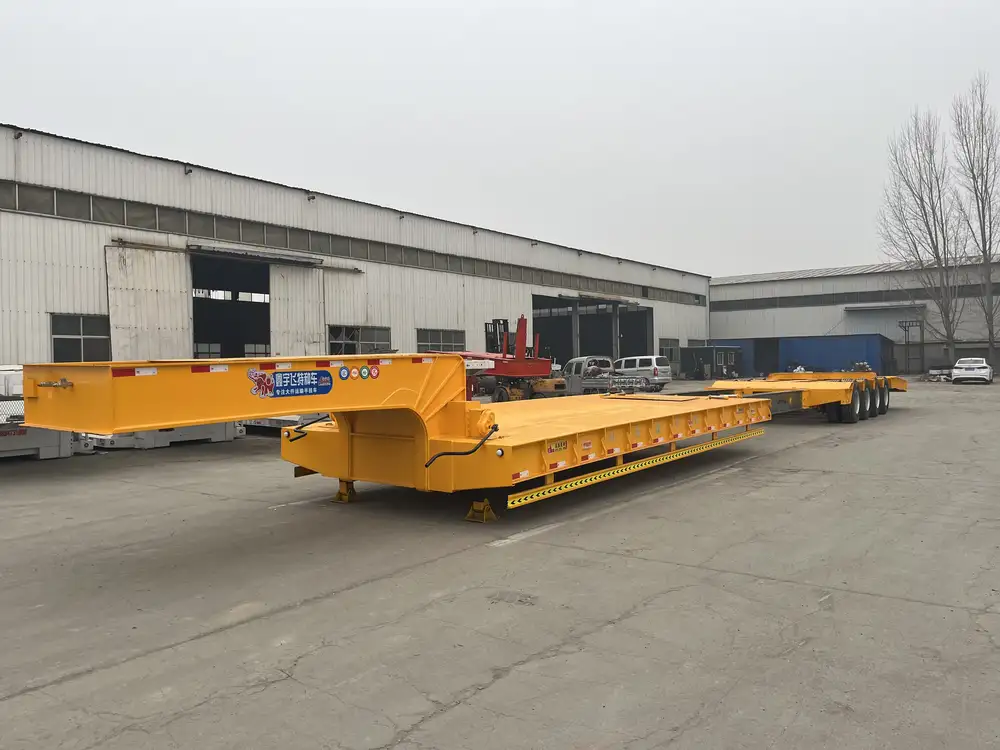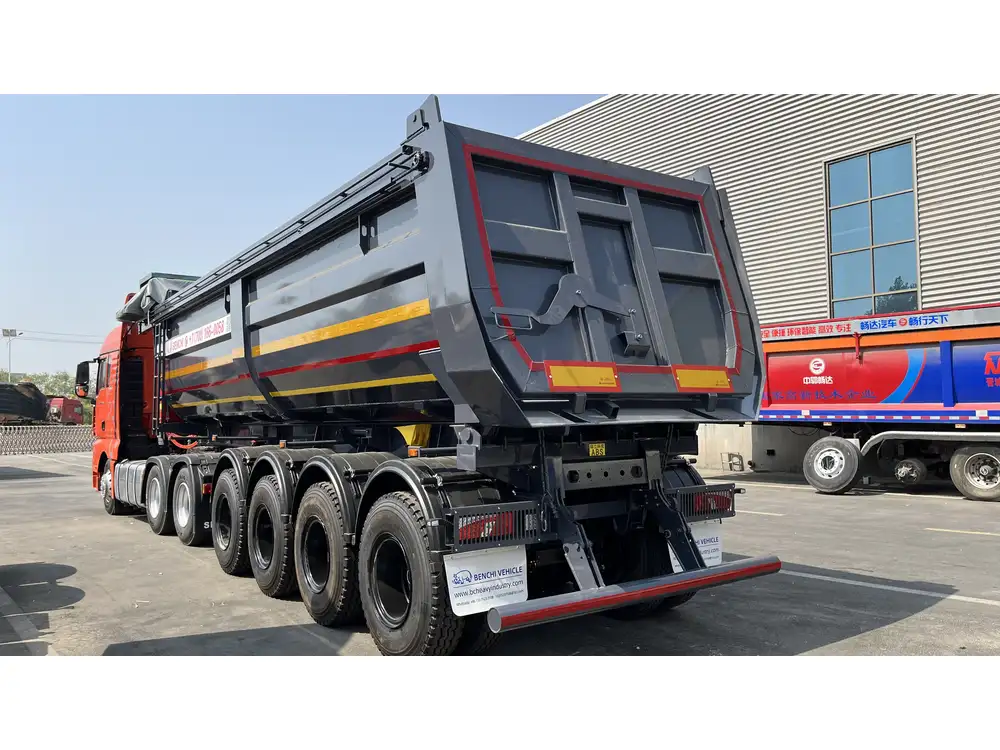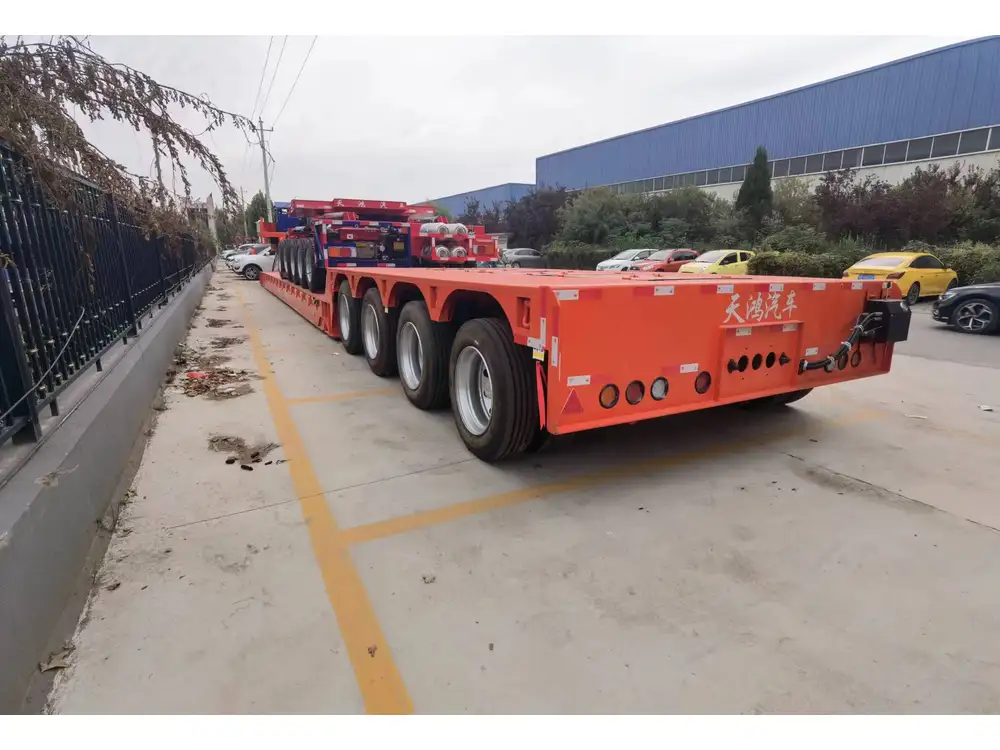When it comes to transportation logistics, understanding every aspect of your equipment is crucial for efficiency and safety. One such piece of equipment that plays a pivotal role in the transportation industry is the aluminum tank trailer. In this article, we delve into the specifics of how much aluminum tank trailers weigh, and the factors influencing their weight, allowing you to make informed decisions regarding your fleet management and operational requirements.
Understanding Aluminum Tank Trailers
Aluminum tank trailers are essential for transporting liquids such as fuel, chemicals, and food-grade products. They are favored for their lightweight properties, corrosion resistance, and durability. The construction materials, overall design, and intended use significantly influence their weight, making it essential to understand these factors when evaluating your options.
Composition and Structure
Materials Used: The primary element in aluminum tank trailers is, of course, aluminum. With a density of 2.7 grams per cubic centimeter, aluminum is considerably lighter than steel, which has a density of approximately 7.85 grams per cubic centimeter. This material choice is critical in reducing the overall weight of the tank trailer.
Tank Size: Tank trailers come in various sizes—common capacities range from 5,000 to 11,600 gallons. The greater the capacity, the heavier the trailer generally becomes due to the additional material required for construction.
Design Features: The design—everything from the number of axles to the tank shape—plays a vital role in determining weight. Double and triple-axle configurations, for example, offer greater load distribution but can also increase the overall weight.

Key Factors Influencing Weight
Understanding weight variance in aluminum tank trailers necessitates exploring fundamental aspects that contribute to their overall weight.
1. Construction Techniques
Modern manufacturing techniques greatly influence the weight of aluminum tank trailers. Advances in welding, segmentation, and component fabrication have reduced excess weight while maintaining structural integrity. Utilizing aerospace-grade aluminum alloys can further decrease weight without compromising strength.
2. Payload Capacity Considerations
Payload capacity is essential in determining the optimal trailer for specific tasks. Most aluminum tank trailers are designed with a payload capacity ranging from 4,000 to 7,500 gallons. This will not only define the weight of the trailer itself but also necessitate strict adherence to weight regulations set forth by transportation authorities.

Table: Payload vs. Weight of Aluminum Tank Trailers
| Capacity (Gallons) | Estimated Trailer Weight (lbs) | Typical Payload Capacity (lbs) |
|---|---|---|
| 5,000 | 6,000 | 25,000 |
| 7,500 | 8,000 | 30,000 |
| 11,600 | 10,500 | 40,000 |
3. Trailer Configuration
Single vs. Multiple Axles: Single-axle configurations are lighter and are adequate for specific applications, whereas multiple axles distribute load more evenly, increasing safety and stability but often resulting in a heavier overall weight.
Tank Configuration: Round and oval designs tend to be lighter compared to square-shaped tanks due to less material usage in their construction, which can impact not only weight but also aerodynamics.
Weighing the Cost: Aluminum vs. Steel
Though fiberglass and steel are often used in tank trailers, the adoption of aluminum presents distinct advantages despite any initial cost discrepancies. Let’s explore how weight influences operation, efficiency, and ultimately, costs.

Weight Comparison
An equivalent steel tank trailer may weigh significantly more than its aluminum counterpart while limiting the payload capacity. This can lead to a reduction in fuel efficiency and increased operational costs.
Cost of Ownership
| Material | Approximate Weight Difference | Impact on Fuel Efficiency | Maintenance Costs |
|---|---|---|---|
| Aluminum | 20-30% lighter | Improved fuel efficiency | Lower (resistant to rust and corrosion) |
| Steel | Heavier | Lower efficiency (higher fuel costs) | Higher (rust preventive measures needed) |
Regulatory Implications
Understanding legal weight limits is imperative for operations. Overweight vehicles can face hefty fines, and knowing the weight of trailers is crucial for compliance. Aluminum tank trailers provide a margin that allows for higher payload capacities while remaining within legal limits.

Benefits of a Lightweight Aluminum Tank Trailer
Investing in an aluminum tank trailer offers several advantages that impact overall operational efficiency:
1. Enhanced Fuel Efficiency
The lightweight nature of aluminum translates to lower fuel consumption. Less weight means that the vehicle using the trailer does not require as much power to pull it, leading to increased fuel economy.
2. Increased Payload Capacity
With reduced weight on the trailer itself, operators can maximize payload limits without infringing upon regulatory guidelines, thus driving revenue potential up.

3. Extended Longevity and Durability
Aluminum’s resistance to rust and corrosion enhances trailer longevity, reducing downtime typically associated with repairs or maintenance that is more common with steel variants.
4. Eco-Friendly Operational Advantage
Choosing aluminum contributes to a greener operational model as lighter trailers consume less fuel, translating to lower emissions throughout their lifecycle.
Understanding Weight Distribution
Proper weight distribution is essential for maintaining the safety of the vehicle and trailer combination. An unbalanced load can lead to dangerous driving conditions and increased wear on tires and suspension systems.

Load Distribution Strategies
- Even Load Distribution: Ensure that liquids are transported in a manner that minimizes sloshing and maximizes balanced weight across the axles.
- Proper Tank Design: Opt for designs that facilitate the best distribution of weight based on your typical cargo load.
Conclusion: Informed Decision Making for Operations
Choosing the right aluminum tank trailer weighs heavily on operational needs, regulatory compliance, and efficiency considerations. It’s paramount for fleet managers and operators to understand not just how much an aluminum tank trailer weighs, but to explore the myriad of factors influencing that weight, the advantages of adopting aluminum over alternative materials, and the implications that lighter trailers have on operational efficiency.
By gaining a thorough understanding of these elements, operators can better assess their equipment needs, control costs, and ultimately enhance fleet performance. Whether your needs revolve around fuel transport, chemical products, or food-grade liquids, embracing the lightweight efficiency of aluminum tank trailers can position your operations for success.



